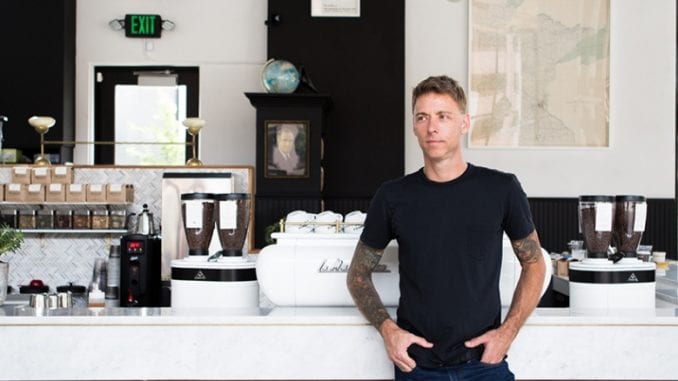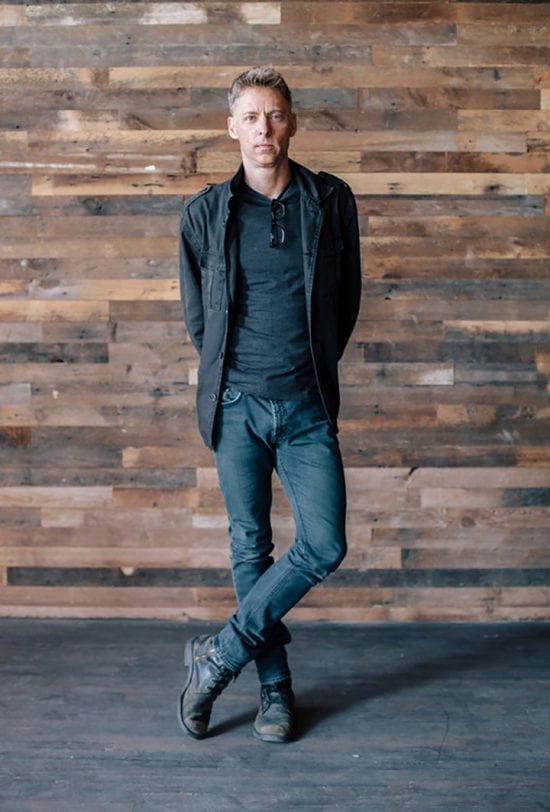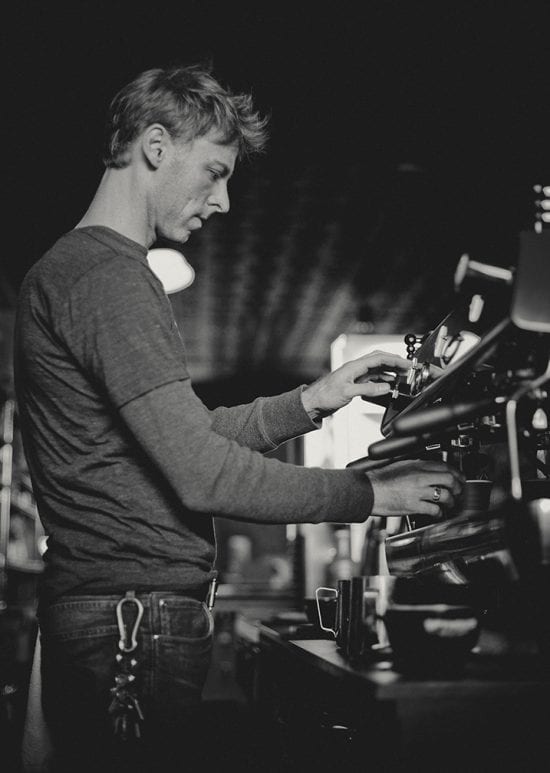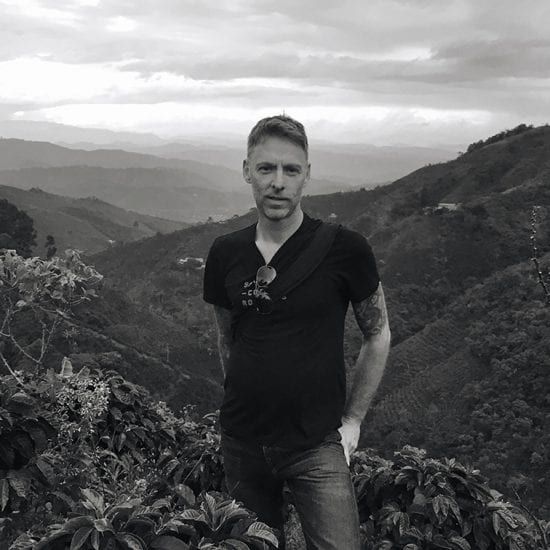
While working in coffee to support a nascent career in arts administration, Christian Johnson decided to buy a café. Eighteen years later, his business, Spyhouse Coffee, is a powerhouse wholesale roaster and mini-chain in the Minneapolis area.
BY CHRIS RYAN
BARISTA MAGAZINE ONLINE
Cover photo courtesy of Spyhouse Coffee
Last November, Minnesota’s Spyhouse Coffee opened its fifth location, located in St. Paul—its first shop outside of Minneapolis. It’s a sign of expansion for the 18-year-old business founded by Christian Johnson, the hands-on, numbers-obsessed, coffee-loving owner driving Spyhouse’s growth. We talked to Christian about his background in coffee, his almost-career in arts administration, life at Spyhouse, and much more.
Chris Ryan: What are your earliest memories of coffee? What was your relationship with coffee before you started working in the industry?
Christian Johnson: My earliest memories of coffee would be seeing the Folgers tin can at our family lake cabin when I was 10. I remember using that round plastic cover as a frisbee. I remember the ridges of the can and the rust that would find itself on the outside bottom of the can. The aroma of that coffee there always signified family, leisure, and spending time in the sun and in the water.
My relationship with coffee and cafés began in the early ’90s when I was in college. My apartment was so cold in the winter that I had to spend nights studying at a Minneapolis indie café that was located a few blocks away. I had just moved there and didn’t know anyone, and spending those nights at that café drinking mint mochas was my first experience with café culture.

CR: What career path did you think you’d follow before coffee? How did you start working in coffee?
CJ: I graduated from the University of Minnesota with a bachelor’s degree in journalism, urban studies, and photography. My intent was to apply at Pratt Institute in Brooklyn for a master’s in arts administration. While in college, I spent my senior year interning at local galleries, exhibiting my photographs at cafés and galleries, which is what encouraged me to pursue a career in curatorial work. However, after I graduated, I began managing the same café that I had spent my college years studying at. After a deal to buy that café had fallen through, I began looking at locations, opening Spyhouse nine months later—in July 2000.
CR: How has Spyhouse evolved and grown during its life?
CJ: Since its inception in 2000, Spyhouse has grown to four cafés, a roasting program with a cupping lab and training center for wholesale accounts and staff, and most recently, a fifth café that opened last November in St. Paul by Macalester College.
Currently, we have a staff of 52, which includes directors of the following departments: retail, coffee, education & quality control, and wholesale. Our wholesale program consists of having a well-curated list of wholesale partners that share our belief in exceptional coffee and have a passion for preparing that coffee within specialty standards. We wholesale for bakeries, cafés, grocery, offices, and e-commerce sites.

CR: What does your day-to-day work look like now? What are your areas of focus?
CJ: As with all independent companies, owners perform a wide spectrum of responsibilities and duties. My day-to-day consists of not only being the founder and owner, but serving as director of operations for the entire company.
My weekly responsibilities include overseeing retail operations, performing and curating all social media, co-green-buying with the director of coffee, working on the design of all stores, and handling all the accounting for the business.
I would say that my fervor for learning as much as possible about coffee can be said about numbers. I admire the financial side and I am obsessed with statistics. There just seems to be a story that is told with statistics, such as knowing that 80 percent of our transactions are credit purchases and that 55 percent of sales are to-go, with drip coffee accounting for 20 percent of coffee retail drinks. In comparison, it is just as fascinating to know in relation to the global coffee market that there are 125 million people who work in coffee, 25 million coffee-growing families, where 80 percent of the world’s coffee is produced by 18 million small producers exporting, on average, four bags per hectare. I just love geeking out on all things numbers and coffee.

CR: Finally, what are your favorite things about working in coffee?
CJ: Well, one of my favorite things is having coffee right away in the morning. Cortado and single origins would be my first choices. I enjoy socializing with the staff and feeling the energy of the cafés everyday.
The main reason I opened Spyhouse was to be involved and committed to a project—an all-encompassing project that involved coffee, design, art, friends, and management. I also enjoy traveling to coffee-producing countries and talking to producers. For example, we recently went to Huila, Colombia. We met one farmer, Jairo Quinones, in Alta Cabuyal, Pitalito. He worked as a picker for eight years, and just six years ago was able to buy his own farm—a majestic farm with sweeping views of the valley below. It is remarkable to see the nature and spirit of entrepreneurship in an industry where farmers and their workers should be paid higher than they currently are throughout the bean belt.

